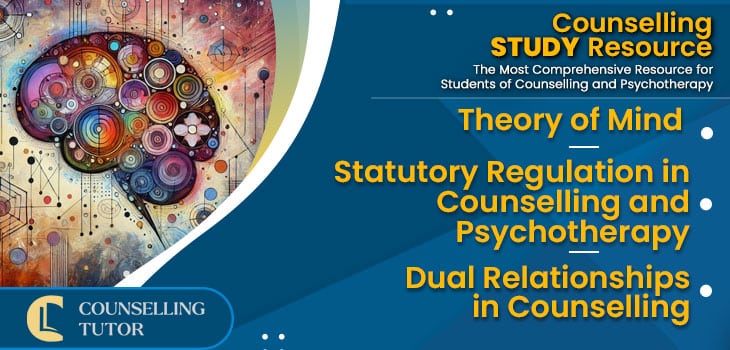See Counselling Skills Used in Real Sessions by Qualified Therapist
Real Sessions – Real Presentations – Real Skills
Gain the competence and confidence to use counselling techniques effectively!

In Episode 322 of the Counselling Tutor Podcast, your hosts Rory Lees-Oakes and Ken Kelly take us through this week’s three topics:
Theory of Mind
In this section, Rory and Ken discuss Theory of Mind, a developmental psychology concept that has drawn controversy in its application to neurodivergence and autism.
Key points include:
Takeaway: Therapists must approach neurodivergent clients with sensitivity, recognising diversity in communication styles and avoiding deficit-focused perspectives.

Real Sessions – Real Presentations – Real Skills
Gain the competence and confidence to use counselling techniques effectively!
In this week’s ‘Practice Matters’, Rory speaks with Dr. Anne Guy about the implications of statutory regulation in counselling and psychotherapy.
Main points include:

On-demand access to a rich lecture library covering theory, skills, and professional development for counselling students—Mapped to the UK awarding body criteria
“The Student Library has been BRILLIANT, I can’t recommend it enough!
It has been a lifeline in helping me prepare for practice and my first clients. If you’re considering it, go-for-it, it’s absolutely worth it!”
Kelly – Graduated and now in practice.
Managing dual relationships is a critical yet nuanced aspect of ethical counselling practice.
Key points:
Definition: Dual relationships occur when a therapist has another type of relationship with their client, such as being a friend, family member, or colleague.
Case Examples:
Takeaway: Maintain professional boundaries and consult with supervisors or peers for guidance when dual relationships arise.
Theory of Mind

Get on-demand Certified CPD that is implementable in your practice
